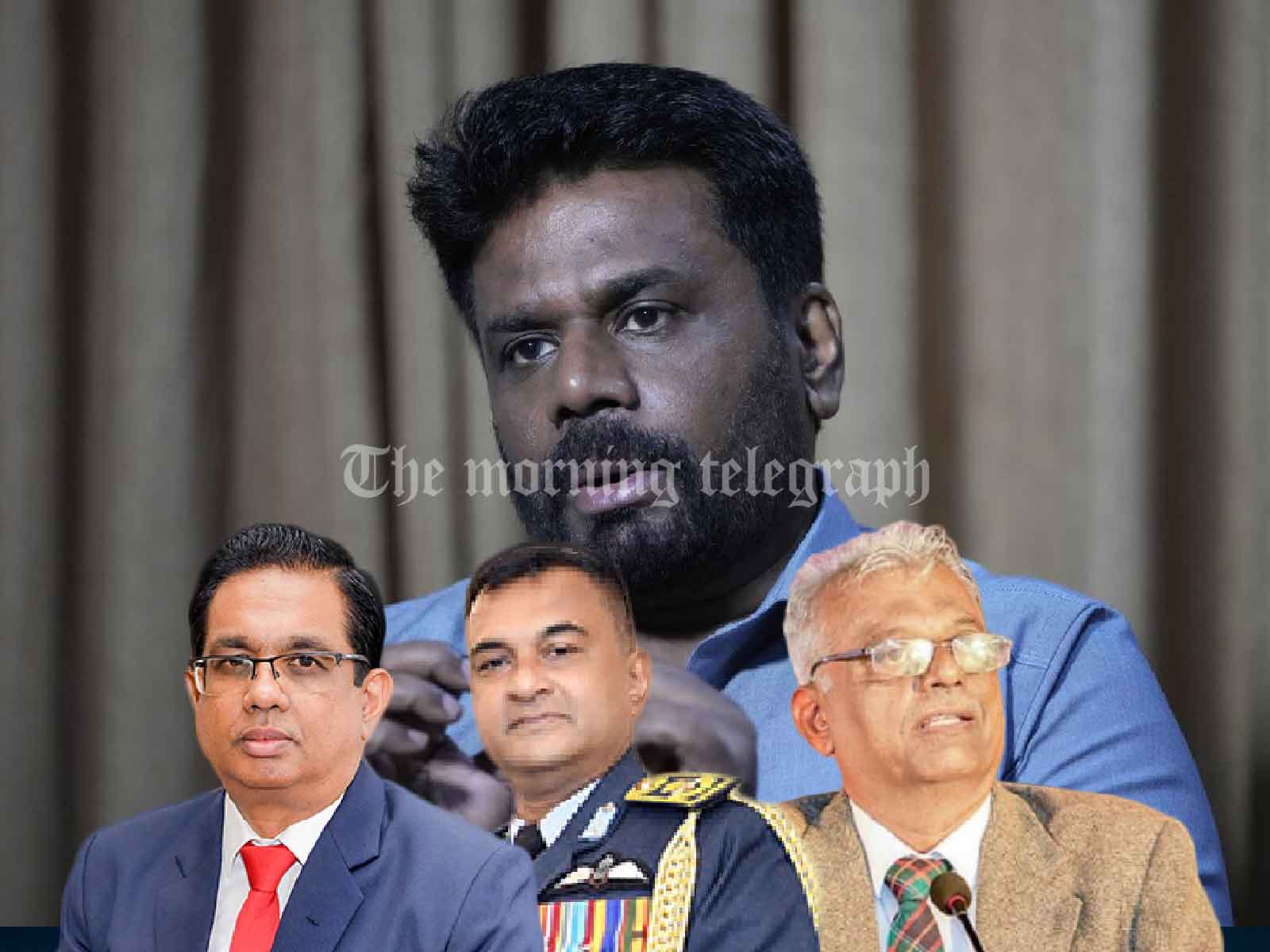
Friends and Associates in Key Roles on Day One
Anura Kumara Dissanayake, newly elected as President of Sri Lanka, has wasted no time in making significant appointments, with his first decisions already raising eyebrows. On his first day in office, Dissanayake appointed close friends and associates to prominent government roles, sparking public discourse about whether these moves align with the ethical governance and meritocracy he had championed during his campaign. As the leader of the National People’s Force (NPP), Dissanayake had gained traction by criticizing the practices of previous administrations, especially the trend of appointing friends and family members to key positions. Now, however, some are questioning if his own choices are consistent with those values.
Key Appointments and Their Backgrounds
1. President’s Secretary: Nandika Sanath Kumanayake
Anura Kumara Dissanayake’s appointment of Nandika Sanath Kumanayake as President’s Secretary has drawn public attention, particularly due to their close personal relationship. Kumanayake, a university contemporary and personal friend of the President from their time together at Kelaniya University, has been seen as a long-time associate of Dissanayake. While his professional qualifications have not been widely publicized, Kumanayake is known for his role as Deputy Director of Sri Lanka Customs, where he focused on research areas such as Corruption and Integrity in Customs, International Trade, and Development Economics. His current dedication to studying integrity issues within Customs suggests a background in policy and governance, yet concerns about favoritism have emerged because of the personal ties between the two.
Critics argue that despite his professional achievements, the decision to appoint a close friend to such a key position may contradict the meritocratic principles Dissanayake advocated during his campaign. However, others contend that Kumanayake’s experience in combating corruption and studying economic issues could prove beneficial in the role, especially given Sri Lanka’s ongoing challenges.
Historically this post the Head of the Presidential Secretariat is the Secretary to the President who is also known as the ‘President’s Secretary’ who is the Ex-Officio and who is the most senior civil servant and the head of the Sri Lanka Administrative Service. The Post of President’s Secretary has its roots from the post of Secretary to the Governors of Ceylon and thereafter the Secretary to the Governor General of Ceylon.
This trend was however broken in 2019 when a Non SLAS person named P.B.Jayasundara was appointed. It appears that President Anura Kumara Dissanayake has also broken with tradition and is following the “Rajapaksa Governance” in appointing Nandika Sanath Kumanayake who besides been a personal friend and a campus colleague has served as the Deputy Director of Customs Sri Lanka.
List of previous Secretaries to the President of Sri Lanka. W. M. P. B. Menikdiwela, SLAS (1979–1988), Prematilaka Mapitigama, SLAS (1988–1989), K. H. J. Wijedasa SLAS (1989–1994),K. Balapatabendi, PC (1994–2003), W. J. S. Karunaratne, SLAS (2003–2005), Lalith Weeratunga, SLAS (2005–2015), P.B. Abeykoon, SLAS (2015–2017), Austin Fernando, SLAS (2017–2018), Udaya Ranjith Seneviratne, SLAS (2018–2019),P. B. Jayasundera (2019–2022), Gamini Sedara Senarath (2021-2022)[ E.M.S.B. Ekanayake (2022-2024),Nandika Sanath Kumanayake (2024-present)
2. Public Security Ministry Secretary: Ravi Senaviratne
Ravi Senaviratne, formerly a senior security chief, held a key role during the time of the 2019 Easter Sunday attacks in Sri Lanka, which resulted in severe criticism of the country’s security apparatus. He later became politically involved by joining the NPP, or “Compass,” as it is popularly known. His appointment to such a critical role as Public Security Secretary has raised questions regarding accountability, given his association with past security failures. The decision to appoint him is viewed by critics as potentially controversial, given his past.
Critics have raised serious concerns following the appointment of former Senior DIG CID Ravi Seneviratne as the new Secretary to the Ministry of Public Security by President AK Dissanayake. This move is seen by many as a direct contradiction of the NPP’s election manifesto, which emphasized transparency and reform.
Seneviratne is currently embroiled in a legal case related to the Easter Sunday attacks, which remains under investigation by the CID. To avoid arrest, he filed a petition with the Supreme Court (SC FR 242/2024), and on September 20, 2024. The petition was heard before a three-judge Bench of the Supreme Court comprising Justices Preethi Padman Surasena, Achala Wengappuli, and Mahinda Samayawardena. The court ordered further investigation into allegations that Seneviratne, along with Shani Abeysekara, had disregarded advance warnings about the Easter attacks during their tenure at the CID.
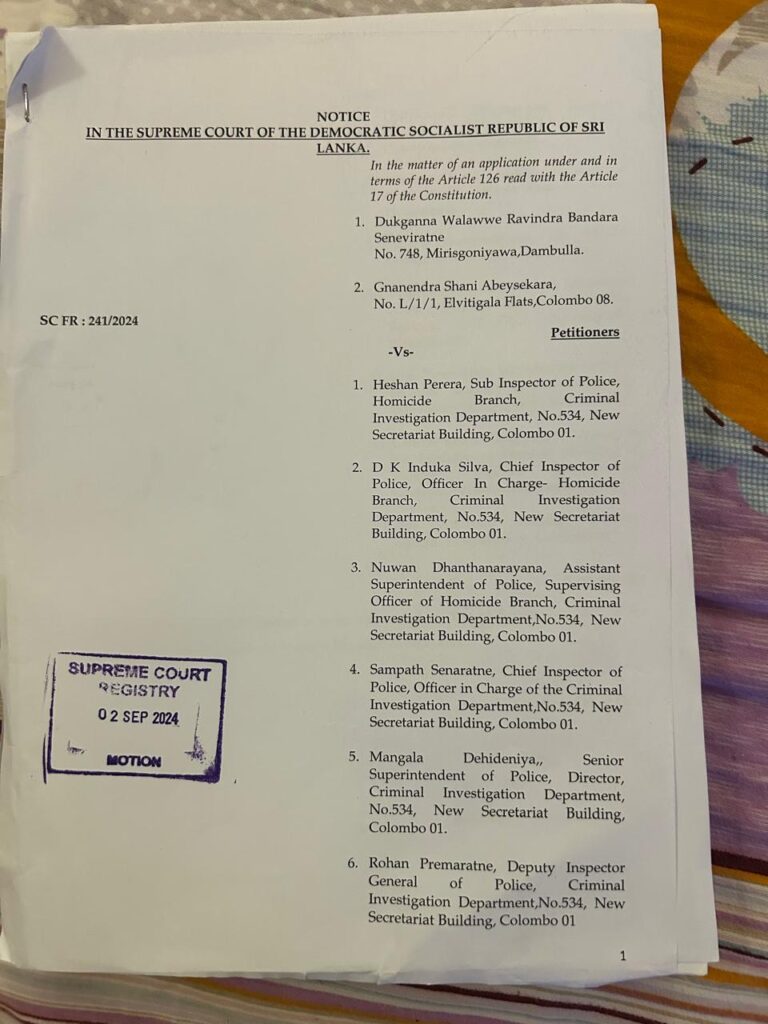
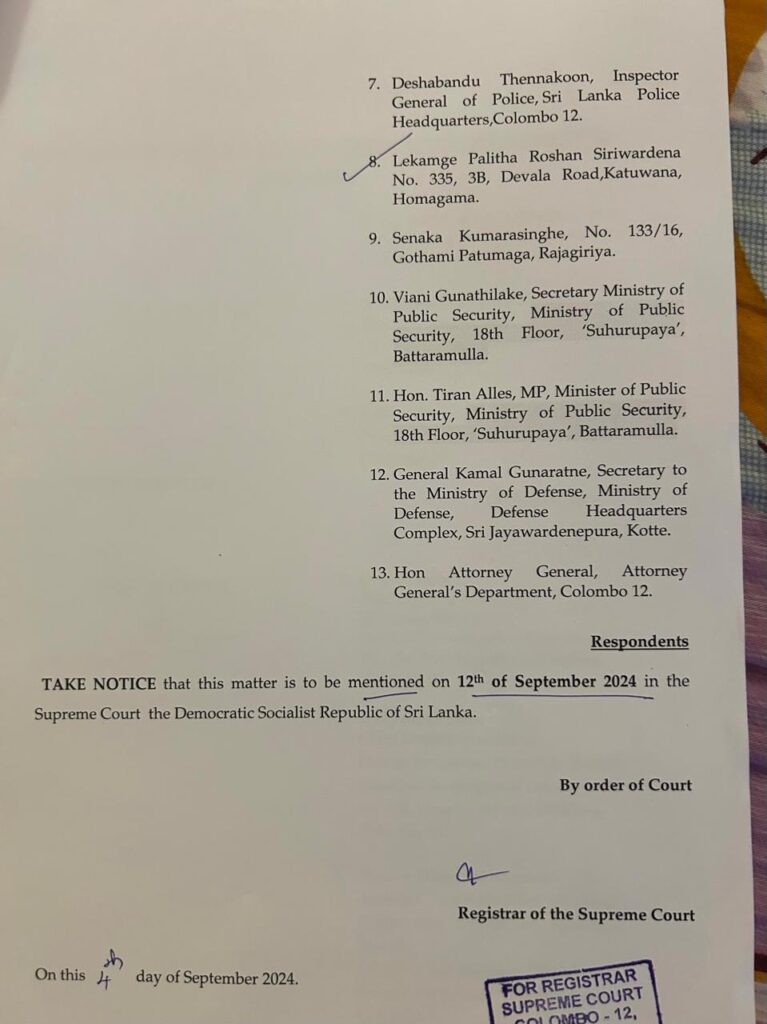
Adding to the controversy, the next hearing for the case has been scheduled for January 27, 2025. Seneviratne’s appointment to a position overseeing the police and CID has drawn accusations of a clear conflict of interest, as his authority over the Ministry of Public Security could potentially interfere with the ongoing investigation.
Observers argue that this appointment contradicts the principles of accountability and justice that AKD had promised during his campaign.
In late 2023, Senior DIG CID Ravi Seneviratne was also involved in a car accident on Marine Drive, Wellawatte, allegedly while driving under the influence of alcohol. The incident, which quickly gained widespread attention across television, print, and social media, drew significant public criticism due to the reckless behavior of the high-ranking former officer.
Following the accident, Seneviratne was brought before the Mount Lavinia Courts, where he was granted bail, with charges expected to be filed in January 2024. The case continues to attract attention given his prominent position and past controversies.
3. Defense Secretary: Sampath Thuyakontha
Thuyakontha, reportedly blacklisted by the Sri Lankan Air Force at one point, also joined Dissanayake’s political movement. His appointment as Defense Secretary has sparked significant criticism due to his checkered past within the military and his political affiliations. The move is seen as an attempt to solidify a political base rather than to prioritize expertise and experience in the defense sector.
In one of his first significant moves as President of Sri Lanka, Anura Kumara Dissanayake has appointed Sampath Thuyacontha as the new Secretary of Defence, a controversial figure accused of war crimes. Thuyacontha, the former Wing Commander of No. 09 Squadron during the final phase of the Sri Lankan civil war, oversaw operations involving Fleet 24, which has been accused of engaging in indiscriminate carpet bombing in the conflict. These bombings, particularly during the infamous Mullivaikkal massacre in May 2009, played a key role in the military’s efforts to defeat the Liberation Tigers of Tamil Eelam (LTTE) is believed to have led to the deaths of tens of thousands of Tamil civilians.
Media reports claim that Thuyacontha has in the past openly spoken about his role in creating “chaos” during these operations, boasting about the destruction caused by his squadron. He admitted to overseeing around 400 missions during the final stages of the war, many of which targeted civilian areas, including hospitals and “No Fire Zones,” under the pretext of eliminating LTTE forces. His fleet was heavily armed, deploying weapons such as 80 mm rockets, 250 kg bombs, 23 mm twin-barrel systems, and Gatling guns. The tactics used by Fleet 24, including carpet bombing, led to widespread devastation, including the destruction of critical infrastructure and the loss of countless civilian lives.
Thuyacontha’s actions, along with those of other military leaders, have been widely criticized by international human rights organizations for violating humanitarian laws, with accusations of deliberately targeting civilian populations. Following the war, like many senior military officials, Thuyacontha was appointed to a diplomatic post, serving as Sri Lanka’s defence attaché to Pakistan, a move seen as a tactic to protect him from war crimes prosecutions.
The decision to appoint Thuyacontha as Secretary of Defence has sparked controversy and raised concerns about President Dissanayake’s commitment to justice, reconciliation, and human rights. Many view this appointment as a continuation of the impunity enjoyed by individuals implicated in wartime atrocities, casting doubt on the new administration’s pledges for transparency and accountability. This move follows a similar pattern, as Thuyacontha’s predecessor, Kamal Gunaratne, was also an accused war criminal, indicating a troubling continuity in governance despite promises for reform.
Contradiction of Campaign Promises?
Throughout his political career and in the lead-up to his election, Anura Kumara Dissanayake consistently advocated for a clean break from the corrupt practices of previous administrations. He often criticized past leaders for using their political power to place friends, family, and political allies in high-level government positions, a practice that he argued undermined the competence and integrity of the government.
Many supporters of Dissanayake were drawn to his message of change and his vision for a transparent, merit-based government. His rhetoric was aimed at fostering a new political culture, where qualifications and capabilities would take precedence over personal relationships and political allegiances. The early appointments, however, seem to run counter to those promises, raising concerns about the consistency of his leadership.
Public Reaction and Concerns
The appointments have been met with mixed reactions. Dissanayake’s critics argue that these choices reflect a continuation of the very practices he vowed to dismantle, particularly the tendency of political leaders to surround themselves with friends and allies, prioritizing loyalty over merit. They warn that such actions could erode public trust and confidence in the new administration, especially at a time when the country is in dire need of strong leadership to navigate its political and economic crises.
Some critics have raised concerns that appointing close friends to key roles on the first day could set a precedent for future appointments across the administration. If these decisions signal a broader trend, there is a fear that the same nepotism and cronyism that Dissanayake promised to eradicate could become entrenched under his leadership.
Additionally, the selection of individuals like Ravi Senaviratne, who was part of the security establishment during the Easter Sunday attacks, has revived debates around accountability and justice for the victims of that tragedy. Senaviratne’s involvement in that dark chapter of Sri Lankan history is likely to remain a sticking point for many who seek answers and justice.
Defending the Appointments
On the other hand, Dissanayake’s supporters might argue that trust and personal relationships are necessary in government, especially during times of national crisis. The logic here could be that surrounding himself with trusted allies will allow the President to act swiftly and decisively as the country faces significant challenges. From a strategic standpoint, these appointments may reflect Dissanayake’s desire to ensure he has loyal individuals in key positions to implement his policies effectively.
Furthermore, supporters may argue that the President’s choice of friends and allies for these posts is not inherently problematic if those individuals are qualified for the positions they are taking on. They emphasize that the success of these appointments should be judged based on the outcomes, rather than the personal ties involved.
Balancing Merit and Loyalty in Governance
The debate over these appointments highlights a larger question that many political leaders face: How can a leader balance the need for loyalty with the principles of meritocracy and transparent governance? For Dissanayake, the early days of his presidency will likely be defined by how well he navigates this balance.
His appointments on the first day in office will continue to be scrutinized as his administration takes shape, with both critics and supporters closely watching how the rest of the positions are filled in the coming weeks. If these appointments are followed by further decisions that seem to prioritize personal loyalty over professional expertise, Dissanayake could risk losing the momentum and public trust that fueled his election victory.
A Test of Leadership
Anura Kumara Dissanayake’s presidency is already facing its first major test. The decisions he has made on day one could have long-term consequences for how his leadership is perceived, both domestically and internationally. While some will argue that trust and personal connections are vital for building an effective government, others will view these appointments as a troubling indicator of political favoritism. As Sri Lanka looks to emerge from its current crises, Dissanayake’s leadership will depend on his ability to maintain the confidence of the people while staying true to the ideals that brought him to power.
Some also argued that political appointments often overshadow merit-based selections, making it difficult for meritocracy to thrive in such environments. In this system, loyalty is prioritized over individual qualifications or expertise because it ensures alignment with the leader’s vision and policies. The rationale behind this approach is that loyalists, more than outsiders, are trusted to stay committed to the philosophy and objectives set by the leadership. An outsider, particularly one chosen for their merit alone, may not fully understand or embrace the underlying goals of the administration. Consequently, they could unintentionally disrupt or derail the process, making loyalty essential for seamless implementation and continuity.
This practice, while ensuring cohesion within the ranks, often stifles fresh perspectives and the potential innovation that comes from a meritocratic approach, as it places a premium on allegiance over skill.

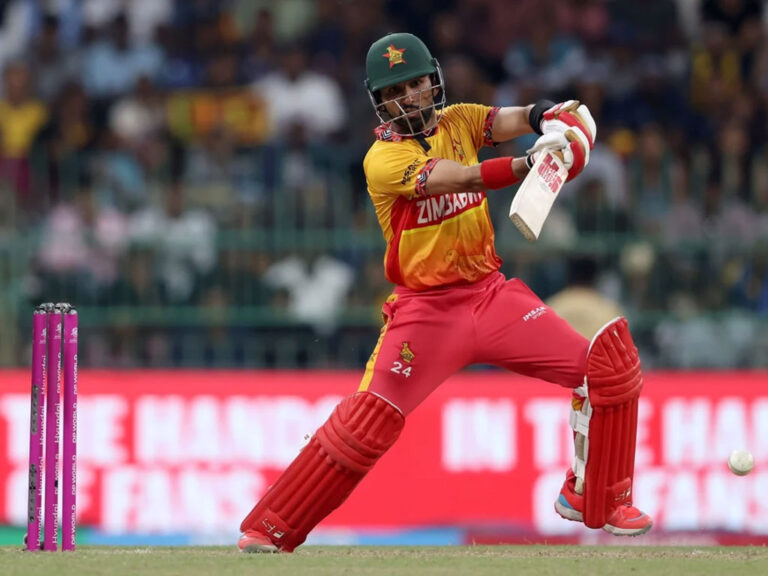
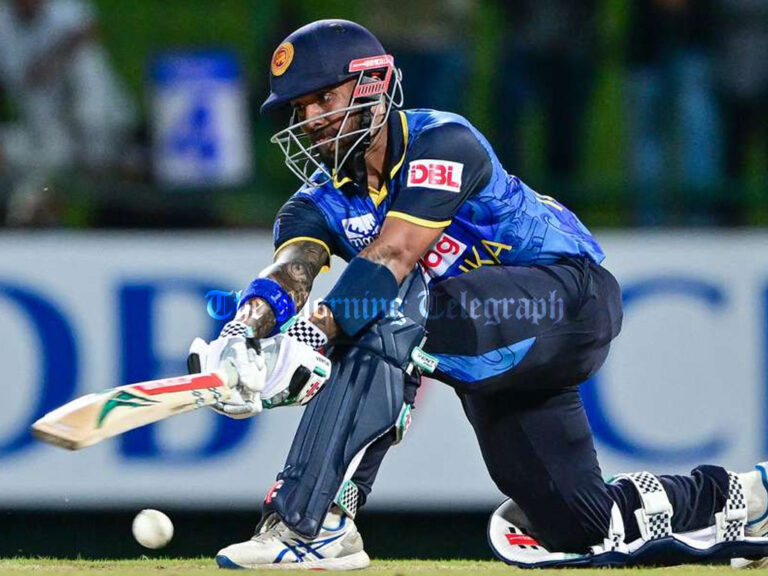


හරිම අපුරැ සටහන් පෙලක්. පෙන්නන්කො මේ සටහන් කරැ යමි දවසක මහ බැංකුව කැඩු රනිල් ගැන ජනපති පදවිය ලද අවස්ථාවේද් කල සටහනක්. සවේන්සද්ර කල යුධ අපරාධ ගැන යමක්, දේශබන්දුගේ අනිතික පත්කිරිම ගැන යමක් . ලියුම් කරැට අවශ්ය සාමිප්රදායට අනුව අල බැහැල වැල මැරිච්ච ජනාධිපති ලේකම් කෙනක් පත්කරගන්නද ? එයඉඑයාගෙ කැමැත්ත සහ අයිතිය. රවි සෙනෙවිරත්න හොද පොලිස් නිලධාරයෙක්. ඔහුගේ සේවය ඉදිරිකාලයේදී බොහෝ දේශපාලවන් වෙනුවෙන් ක්රියාත්මක වේවි ඔවුන් කර ඇති අපරාද සම්බන්දව. සම්පත් තුය්ය කොන්තා අති දක්ෂ ගුවන් නියමුවෙක්. ඒකට ලියුම් කරැගේ විලාපයට එහාගිය ජනතා ප්රසාදයක් ඇති බව සදහන් කරමි. ලියුම් කරැ කුලියට ලියනකෙනක් බව පැහැදිලියි. 😂
Why wont the writer suggest names based on merit.
ලියුම්කරැ ගොම්මන්පිලගෙ කුලියට ලියන්නෙක් බවද පැහැදිලියා
Interesting.
AKD hasnt violated the constitution .This is not the first time Secretaries were appointed out of SLAS .Balapatabedi,Wickrama Weerasooriya,PBJayasundar and so on .Critisisms are welcome . But this is mud sling .Space is limited to explain
The whole thing is he is doing the same thing as his predecessors
100 percent correct.Most of them are public officers.Look at followings:
Ranjith Fernando (NDB Chairman).
Anura Weeraratna(Se Fisheries)
Ranjan Wijeratna(Se Agriculture)
Give some Time Buddy! Give some space to breath. Try to help him by providing some facts to figure out some plans to getrid of this economic crisis, which was well established by Rajapakses and UNP people during past 76 years.
Reality vs Promise
The fact that Colombo Telegraph hadn’t the guts to highlight the heinous misdeeds of the Rajapakshas and our Geriatric, foundation lathered, Wickremasinghe (the batalanda torture chambers, the baseless discontinuation and sale of the Sapugaskanda Urea Plant for scrap metal – almost, Richard De Soysa, Premakeerthi De Alwis) shows the bias they exhibit. That is a sad commentary on this news agency.
President’s secretary has a first class honors and likely a bright guy whom AKD trusts . Customs is a big source of revenue and his direction helps
Thuyacontha is a well regarded and respected officer. Any senior officer who took part in the war can be tainted .
Ravi Seneviratne may be in a difficult situation due to the cases he has to defend although they are politically motivated
Politicaly motivated such as “forced him alcohol “and ask him to take control of a vehicle then arrested after smashing into a vehicle.
If we want change for the better, we need to give the new President time to establish the new ministry and positions of power. If, after some time in the job, no progress is made, then criticise. The main focus is our country and its people of ALL types. Unity is strength. Don’t isolate issues. Progress and a clean up of the particularly sordid and entrenched corruption which main stream media was FRIGHTENED to report for fear of repercussions like the MIB execution of Lasantha Wickrematunga. People have ridiculous demands with unrealistic expectations.
We do not need to jujustify every move he makes. Seriously. We needed change and he is doing it. There will be adverse comnents from losers. This country has been opressed by bad governance for too long.
This is Tiran Allas’s paper. So obviously.
Your comments are disappointing. What do you expect? Give him a chance.
Give him breathing space and comment if there are any irregularities happening. This is all misleading information. Don’t be bias.
As a Dutch Burgher, whose parents had the for sight to eave the country in 1954, I am glad to be living in Canada….
sri lanka is better off wirhout people like you. Shame on you for that comment.
Well you can write what you want in the article
But the majority of the people needed a change and that has happened now
He need people he can trust to work
with
Totally disagree with your arguments.See the constitution and the president’s power in appointing his secretaries. Even govt. Department’s heads are appointed according to the constitution section 55(3). Ethical consideration and legal obligation are two different things.
You can write all you want. He is the president and we thank God for the change that is taking place. He will be critisised for every move he makes. Nevertheless we the people support him.